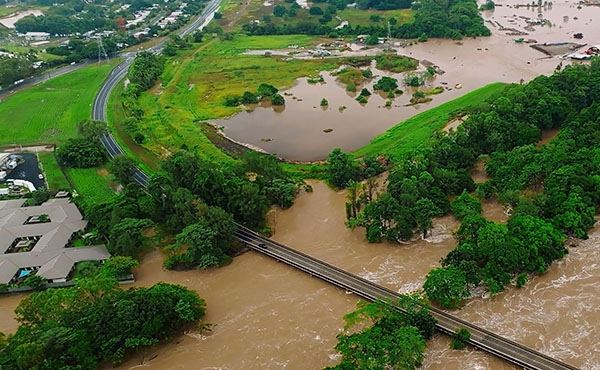Regional communities now recognise climate change as the greatest threat to the Reef 1075 (Section 9.3.1). Climate change is an important driver of change and risk for communities living in, or adjacent to, the Region through an increase in climate extremes (record-breaking temperatures, floods and droughts), climate-associated economic costs,1722 and declining ecosystem condition.
Climate change impacts on the Region’s ecosystems (Section 6.3.2) will have flow-on effects for regional communities and dependent industries. For example, both actual and perceived declines in coral reef condition affect tourism visitation rates and visitor satisfaction.1077,1723 The diverse social and economic benefits derived from the Region include income and employment from fisheries and tourism, coastal protection and cultural values.1323 Globally, climate change has already reduced fisheries productivity,1724 positive tourism experiences,1723 and coastal protection by mangroves, seagrasses and coral reefs.153,1725,1726 Projected global declines in marine fisheries catches 1727,1728 highlight the challenges posed by climate change for sustainable fisheries management in the Region.1729,1730 In particular, projected reductions in coral reef habitat structure could seriously affect reef fisheries productivity,1731,1732 with impacts depending on the degree of resilience and functional redundancy in the ecosystem.371
Without strong mitigation of global warming, these impacts will worsen over the course of the coming century.1538 The vulnerability of Reef-reliant industries largely depends on their exposure and sensitivity to climate impacts, as well as their ability to anticipate and adapt to change. For example, marine tourism operators have shown adaptability and resilience since 2019 (Section 8.5.1), so significant economic losses for this reef-dependent industry due to climate change impacts have not yet been realised. Insufficient understanding of the nature of potential impacts is a significant barrier to adaptation. Improved community understanding of the challenges posed by climate change would enable communities to better prepare for, and mitigate, its impacts. Building stronger, more resilient communities will be critical for the future sustainability of Reef-reliant industries.1733


